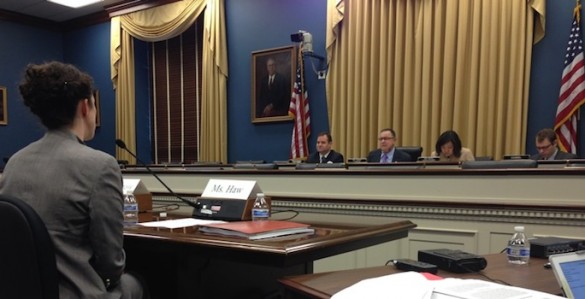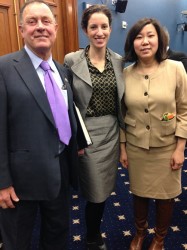

The power of state licensing boards with oversight over nearly a third of American workers should be trimmed to the point where competition can again take hold, a Vanderbilt University law professor testified to the U.S. House of Representatives Committee on Small Business Contracting and Workforce Subcommittee.
“I do not propose an end to licensing or a return to a Dickensian world of charlatan healers and self-trained dentists,” said Rebecca Haw, assistant professor of law at Vanderbilt Law School, in her prepared remarks. “But the risks of unregulated professional practice cannot be used to rationalize unfettered self-regulation by the professionals themselves.”
Haw spoke March 26 in Washington, D.C., to Chairman Richard Hanna, R-New York, and ranking member Grace Meng, D-New York, about bodies that govern jobs requiring a license, which includes beekeepers, locksmiths, auctioneers, tour guides, cosmetologists, funeral directors and many other occupations. The licensing boards of many of these industries are made up of active members of the respective industries, and Haw says they use the licensing power to limit competition.
“The excesses of professional licensing are easy to illustrate,” Haw said. “[lquote]Cosmetologists, for example, are required on average to have 10 times as many days of training as Emergency Medical Technicians.”[/lquote]
Licensing costs consumers $116 to $139 billion each year, Haw said, citing economist Morris Kleiner.
State licensing boards have been assumed to be exempt from the Sherman Antitrust Act’s ban on cartels, a legal interpretation Haw believes is incorrect.
“The law needs to strike a balance,” Haw said. “Immunity from the Sherman Act on state action grounds is not justified under antitrust federalism when those doing the regulation are the competitors themselves, where they are not accountable to the body politic, where they have abused the privilege, and where the anticompetitive dangers are so clear.”
Haws remarks were drawn from an upcoming paper, Cartels by Another Name: Should Licensed Occupations Face Antitrust Scrutiny?, written with Aaron S. Edlin of the National Bureau of Economic Research.